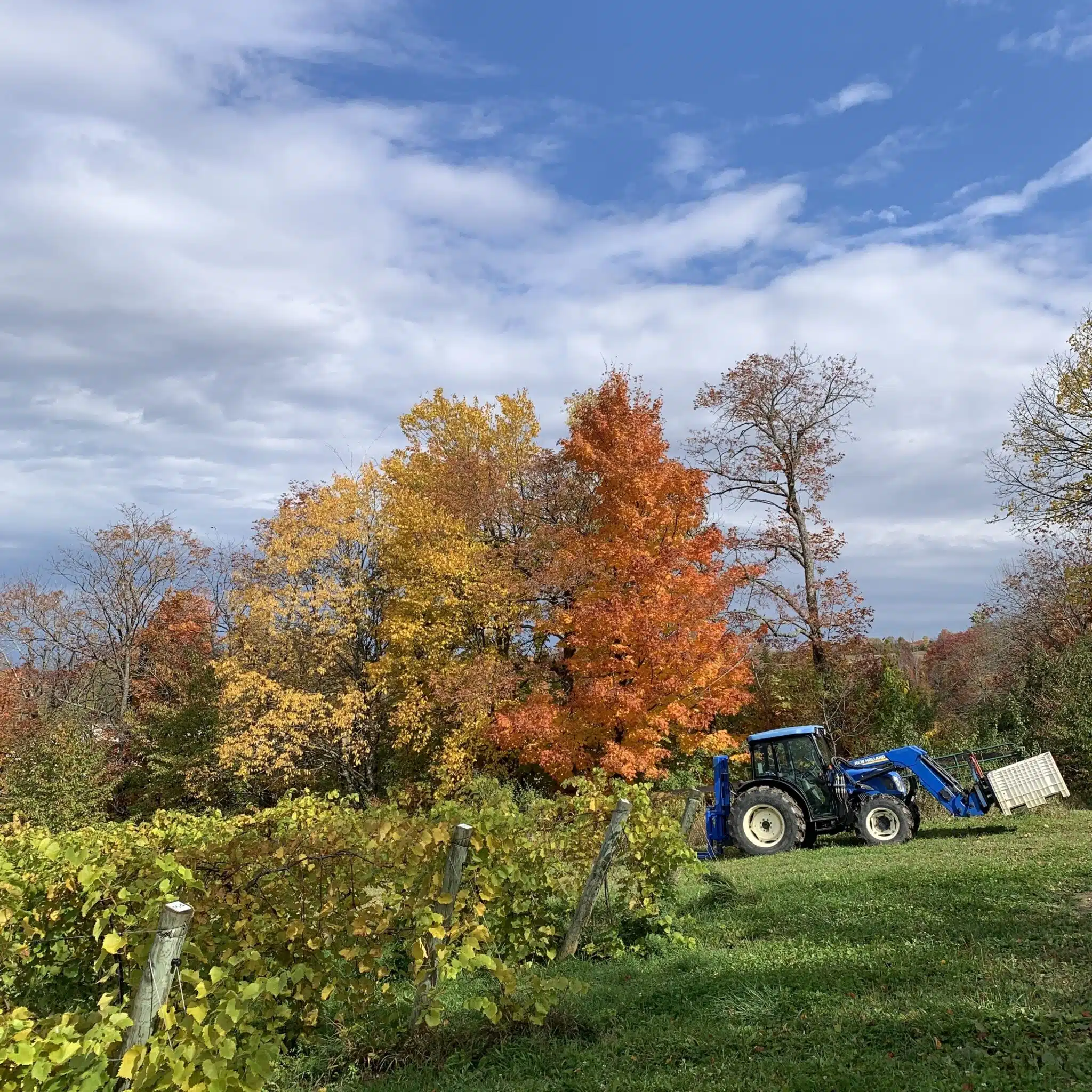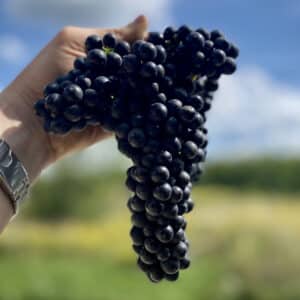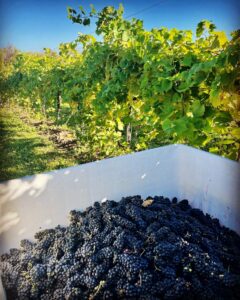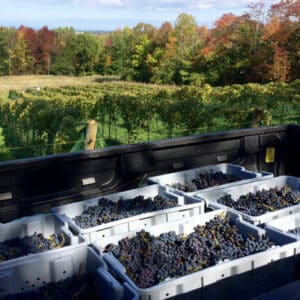One question we often receive in the tasting is about organic certification. “Are you certified organic?”
When the answer is “No,” the conversation tends to revolve around: “Why not?”
While the reasons are complex, we can sum it up best like this:
Grapes are a perennial crop. That means the same plant produces a grape crop year after year. We don’t rip them out and replant every spring like farmers do with lettuce or carrots. A grapevine can keep producing grapes for decades and, in rare cases, even a century or more.
Once a vine is planted, it takes 3-4 years before it even produces a crop we can use. That’s a long time, and a lot of hard work and financial investment. And to keep our vineyard healthy we lavish it with a plenty of fertilizer and natural preventative care. We generally choose organic fungicides and don’t regularly use herbicides and insecticides on our vines. Our vineyard is fed throughout the season with trace minerals, composted manure, and other healthy soil builders.
Now imagine if, despite all of your best efforts using natural growing methods, those vines you’ve invested a lot of time and effort into become sick. Nothing in your organic arsenal will help, and the crop, and even the plants themselves are at risk. Would you turn to conventional care in this instance, if it could save your vineyard?
We would, and we do. And hopefully if the balance is right we have to use conventional methods only rarely, when it’s really required. One day we hope we won’t have to use them at all, but until then we have to say, “No, we’re not certified organic, but we farm sustainably, for us, for our community, and for our future. Part of sustainability on our farm is choosing organic methods whenever we can, and conventional methods only when they’re really needed.”




